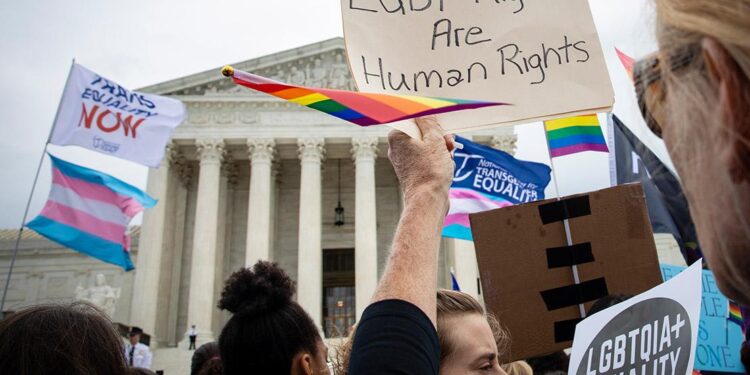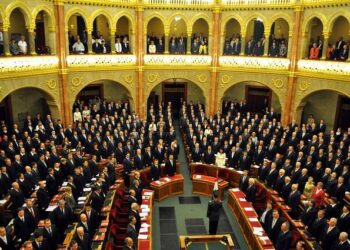Seventeen European Union member states have jointly expressed serious concerns over recent Hungarian legislation targeting LGBTQ+ rights, Reuters reports. The unprecedented collective warning highlights growing tensions within the bloc regarding Hungary’s approach to LGBTQ+ issues, which critics argue undermines fundamental EU values of equality and non-discrimination. This development marks a significant escalation in the ongoing dispute between Hungary and other EU members over human rights policies.
EU Member States Express Deep Concern Over Hungary’s Restrictive LGBTQ Policies
Seventeen EU countries have jointly voiced a strong objection to recent legislation enacted by Hungary, citing significant concerns about the impact on LGBT+ rights and freedoms. The collective statement highlights fears that the new laws, which restrict access to LGBT+ content for minors, could undermine fundamental European values of equality and non-discrimination. Signatories warn the measures risk fostering discrimination and social exclusion, drawing sharp criticism from human rights organizations across the continent.
The coalition emphasized the importance of safeguarding diversity and inclusion within the EU framework, calling on the Hungarian government to reconsider the policies. Key points raised by the member states include:
- Potential violations of EU Charter of Fundamental Rights
- Negative consequences on youth education and well-being
- The importance of protecting freedom of expression and information
| Country | Type of Concern | Key Demand |
|---|---|---|
| Germany | Discrimination risks | Policy reversal |
| France | Freedom of info | Inclusive education |
| Netherlands | Youth wellbeing | Protect LGBTQ+ rights |
Impact of Hungarian Laws on Rights and Freedoms Across the European Union
Seventeen European Union member states have collectively raised concerns regarding recent legislative measures adopted in Hungary, highlighting potential infringements on fundamental rights and freedoms. The laws in question, widely criticized for their restrictive stance on LGBTQ+ expression and education, have sparked fears that they could undermine the EU’s core values of equality, non-discrimination, and human dignity. These countries argue that such legal changes not only impact Hungarian citizens but also set a worrying precedent for the bloc’s commitment to protect minority rights.
Key points of contention include:
- Restrictions on LGBTQ+ content in educational materials and media, limiting access to inclusive information.
- Potential obstacles for cross-border recognition of LGBTQ+ rights, affecting freedom of movement.
- Possible challenges to EU legal frameworks ensuring equal treatment and protection against discrimination.
| Country | Position | Key Concern | ||||||||||
|---|---|---|---|---|---|---|---|---|---|---|---|---|
| Germany | Supportive | Protection of LGBTQ+ youth in schools | ||||||||||
| France | Critical | Impact on freedom of expression | ||||||||||
| Netherlands | Warning | Calls for Coordinated EU Action to Uphold Equality and Protect Minority Rights In a rare unified front, 17 EU member states have called on the European Union to take decisive steps to address rising concerns over Hungary’s recent legislation targeting the LGBTQ+ community. These countries emphasized the urgent need for a collective response to uphold fundamental rights, warning that such national laws risk eroding the bloc’s core values of equality and non-discrimination. They highlighted the dangerous precedent set by allowing member states to enact measures that limit the rights of minorities, urging Brussels to ensure stronger enforcement mechanisms to protect vulnerable groups. The coalition also pointed out specific areas where the EU could reinforce protections, including:
To illustrate the collective stance within the EU, the percentages of member states supporting various actions are summarized below:
The Way ForwardAs tensions rise within the European Union over Hungary’s contentious LGBTQ+ legislation, the unified response from 17 member states underscores deepening divisions on human rights and democratic values. The ongoing debate highlights the challenges the bloc faces in balancing national sovereignty with collective commitments to equality and nondiscrimination. With the issue now firmly in the spotlight, the coming months will be critical in determining how the EU navigates these ideological rifts and upholds its foundational principles. ADVERTISEMENT |
















